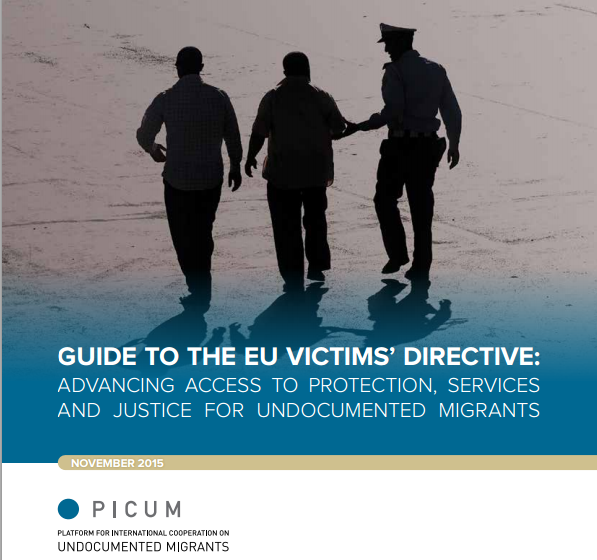
The EU Victims’ Directive (2012/29/EU) grants equal rights and protection to all victims of crime. Article I of the Directive stipulates that the Directive applies to all victims of crime, regardless of their residence status. The Directive is therefore a crucial framework to support undocumented victims in obtaining protection, access to services and justice.
At VSE’s conference in the European Parliament on 9 November, Věra Jourová, European Commissioner for Justice, Consumers and Gender Equality highlighted:
“These days we see many vulnerable people arriving in Europe; some of them are victims of crime, others may fall victim to crime in the future. The new EU rules apply if the crime was committed in the European Union or if the proceedings take place in the European Union. Victims’ rights apply without discrimination and independently of people’s origin and residence status. This means that all victims of crime, including undocumented migrants, should have access to justice – and should get the support and protection they need.”
PICUM – Platform for International Cooperation on Undocumented Migrants – launched a new Guide to the EU Victims’ Directive aiming to provide organisations that support undocumented victims with practical tools and information for advancing their rights in the framework of the Directive. The guide highlights particular challenges confronted by undocumented migrants based on their status and circumstances in getting the protection and support to which they have a right.
PICUM has created a toolkit with resources for members and partners, to inform and to inspire action to advance the rights of undocumented victims of crime. The toolkit includes the following resources in English, French and Spanish:
- Guide to the Victims’ Directive
- One-page summary of the Guide
- Frequently Asked Questions (FAQ) about the Guide, and the Victims’ Directive
- Video on why the Directive is an important tool to ensure undocumented migrants’ access to justice

